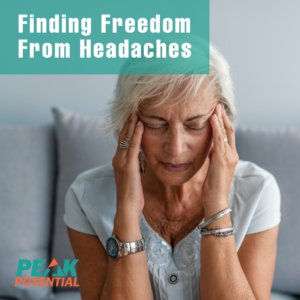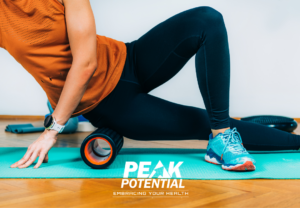
I hope by now we all understand how important a good night sleep is to our health and well being. Many are even trying to improve in this area by using new technologies to measure sleep.
About 20% of Americans own a wearable device, and more than 10% are wearing them to track sleep on at least an occasional basis. If you’re using a fitness tracker to help you sleep at night, it provides some valuable information that can help you optimize your workouts, allow for recovery, and beat insomnia.
However, you have to use this information wisely to make changes that will have a positive impact on your life. In fact, for some these devices actually hinder sleep. Let’s discuss how a sleep tracker can help, how it can hinder, and how to make sleep tracking work for you.
-
Focus on Sleep Quality
While getting the recommended 7 to 9 hours of sleep a night is a good place to start, it’s also important to address the quality of your sleep. This involves how much time you are in light versus deep stages of sleep and how many times you wake up during the night.
-
Don’t Be Anxious
For some people, the device itself is disrupting their sleep! They might become so anxious or focuses on those sleep numbers that it keeps the awake. In fact, the disorder is now so common that it has its own name – orthosomnia.
-
Don’t Focus Solely on Sleep Scores
Most people who track sleep focus solely on reaching some specific sleep score. This is good information to have, to modify the next days works and performance expectations. But, we also need to work to find conditions to improve sleep, wake up refreshed, and feel rested throughout the next day.
-
Check Your Device
Most wearables do nothing more than detect body movements, which is not adequate to measure sleep quality. These devices are becoming more sophisticated with very accurate data, but do your research to see if the manufacturer’s claims to track how deep you are sleeping have been scientifically evaluated.
-
Watch Out for EMFs
We spend all day surrounded by EMFs, but sleep is not a time we want our body to be exposed to high levels of this. In fact, the EMF radiation from your device may negatively affect the quality of your sleep in a very profound way over the long term. Some devices are now EMF free and can track your sleep in airplane mode.
-
Prioritize a Consistent Bedtime
Whether you are tracking or not, going to bed and getting up at about the same time each day is still one of the most reliable ways to improve your sleep score.. These common sense practices are often forgotten when we are trying to “hack” our sleep with technology.
-
Focus on Restorative Sleep
Even if you feel you are getting enough hours logged in bed, that is irrelevant if you aren’t getting deep restorative sleep. The body does this most effectively between the hours of 10 pm and 2 am. The more often you can log quality sleep hours during this time, the better your body will be able to do it’s restorative work.
My personal experience with a sleep tracker was that it hindered my sleep. The device I have emits EMFs during the night, was very inaccurate (I would get up to use the bathroom and the tracker would say I was asleep all night), and it was just uncomfortable to wear. In the end, it didn’t give me any information to help me make better decisions.
On the other hand, my husband has a device that is very helpful to him. It tracks through the night on airplane mode and gives him a seemingly accurate readiness score for his next day. He can make changes in his routine, exercise, and nutrition to improve the quality of his sleep.
We both want to wake up refreshed and have energy to crush our day. And we know that only comes through deep sleep. Through tracking, my husband found that even though he always considered himself a good sleeper (falls asleep quickly and doesn’t wake often in the night), he wasn’t spending enough time in deep sleep states.
That information allowed him to find a supplement – a natural sleep combo – that would increase his restorative sleep dramatically. I use this same “sleep cocktail” to fall asleep quickly and stay asleep through the night. Even though I don’t measure, I’m hopeful my deep sleep is improved as his is.
So, what should you do about your sleep tracker?
As long as you can use your sleep tracker without feeling anxious, you may find that collecting your personal data enhances the quality and quantity of your sleep. It will also help you know whether an intervention or supplement is beneficial to you.
If you have health, performance, or weight loss goals this year, I encourage you to help yourself land in those deeper sleep states more often. You can check out the natural supplement we use and recommend HERE or e-mail amanda@peakpotentialpt.com for help addressing your specific concerns.




